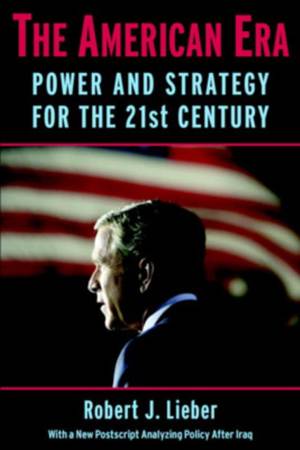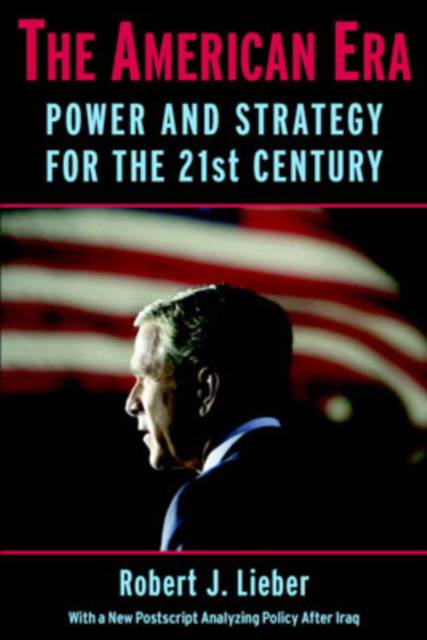
- Retrait en 2 heures
- Assortiment impressionnant
- Paiement sécurisé
- Toujours un magasin près de chez vous
- Retrait gratuit dans votre magasin Club
- 7.000.0000 titres dans notre catalogue
- Payer en toute sécurité
- Toujours un magasin près de chez vous
47,95 €
+ 95 points
Format
Description
The American Era makes a provocative argument about America's world role. It establishes the rationale for a grand strategy that recognizes American preponderance as necessary and desirable for coping with the perils of the post-9/11 world. First, militant Islamic terrorism plus weapons of mass destruction pose a threat of an entirely new magnitude and require us to alter the way we think about the preemptive and even preventive use of force. Second, the UN and other international bodies are habitually incapable of acting on the most urgent and deadly problems. Third, in an international system with no true central authority, other countries will inevitably look for leadership to the U.S. If America, as the world's foremost power, does not take the lead in confronting the most dangerous threats, no one else is likely to have the ability or the will to do so. Thus, at a time when threats from terrorism and weapons of mass destruction are a reality, and when such values as human rights, liberty and stability cannot be reliably assured by institutions such as the UN and the European Union, active intervention on those issues that matter most becomes a necessity, not an option. Robert J. Lieber is currently Professor of Government and International Affairs at Georgetown University. He is an expert on American foreign policy and U.S. relations with the Middle East and Europe. He received his undergraduate education at the University of Wisconsin and his Ph.D. at Harvard and has held fellowships from the Guggenheim, Rockefeller and Ford Foundations, the Council on Foreign Relations, and the Woodrow Wilson International Center for Scholars. Lieber has taught at Harvard, Oxford and the University of California, Davis, and has been Visiting Fellow at St. Antony's College Oxford, the Harvard Center for International Affairs, the Atlantic Institute in Paris, the Brooking Institution in Washington, and Fudan University in Shanghai.
Spécifications
Parties prenantes
- Auteur(s) :
- Editeur:
Contenu
- Nombre de pages :
- 306
- Langue:
- Anglais
Caractéristiques
- EAN:
- 9780521697385
- Date de parution :
- 22-01-07
- Format:
- Livre broché
- Format numérique:
- Trade paperback (VS)
- Dimensions :
- 161 mm x 226 mm
- Poids :
- 421 g

Seulement chez Librairie Club
+ 95 points sur votre carte client de Librairie Club
Les avis
Nous publions uniquement les avis qui respectent les conditions requises. Consultez nos conditions pour les avis.





